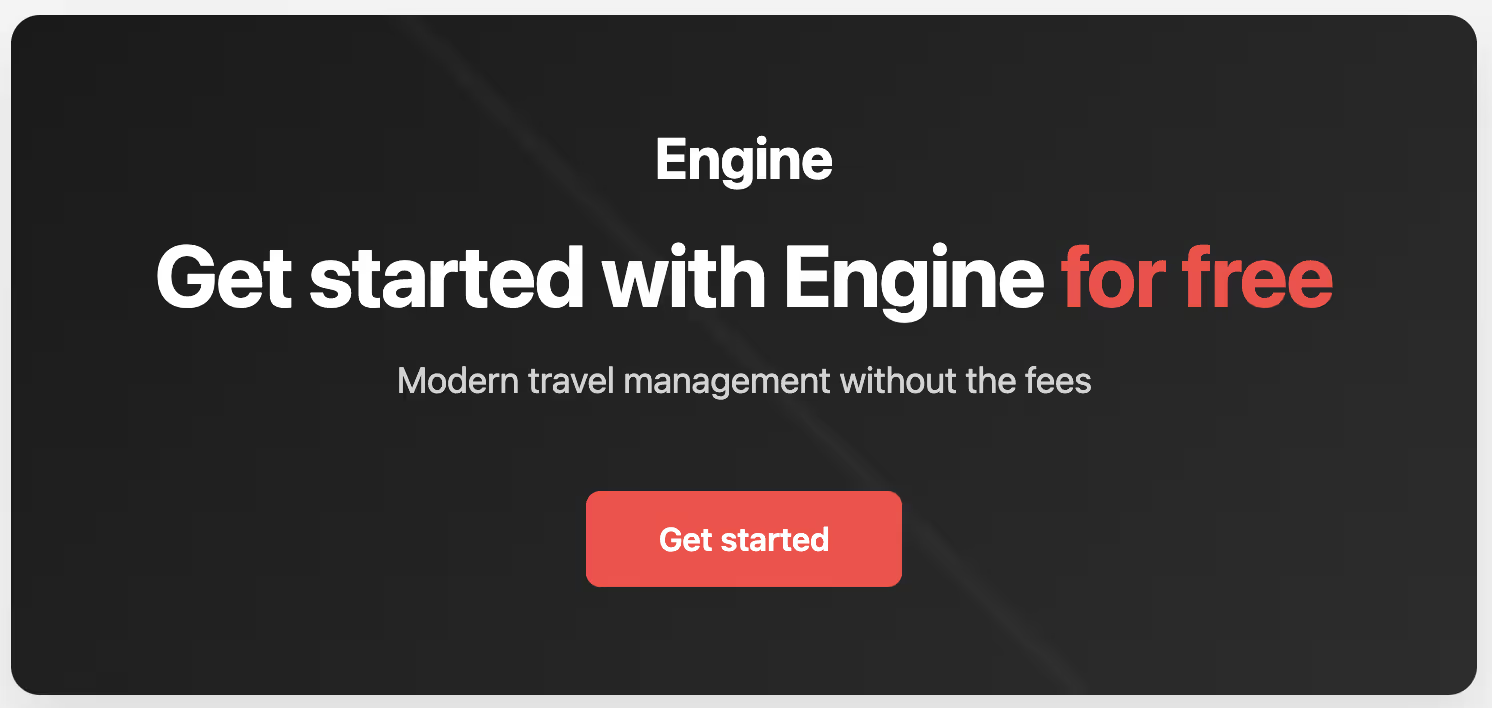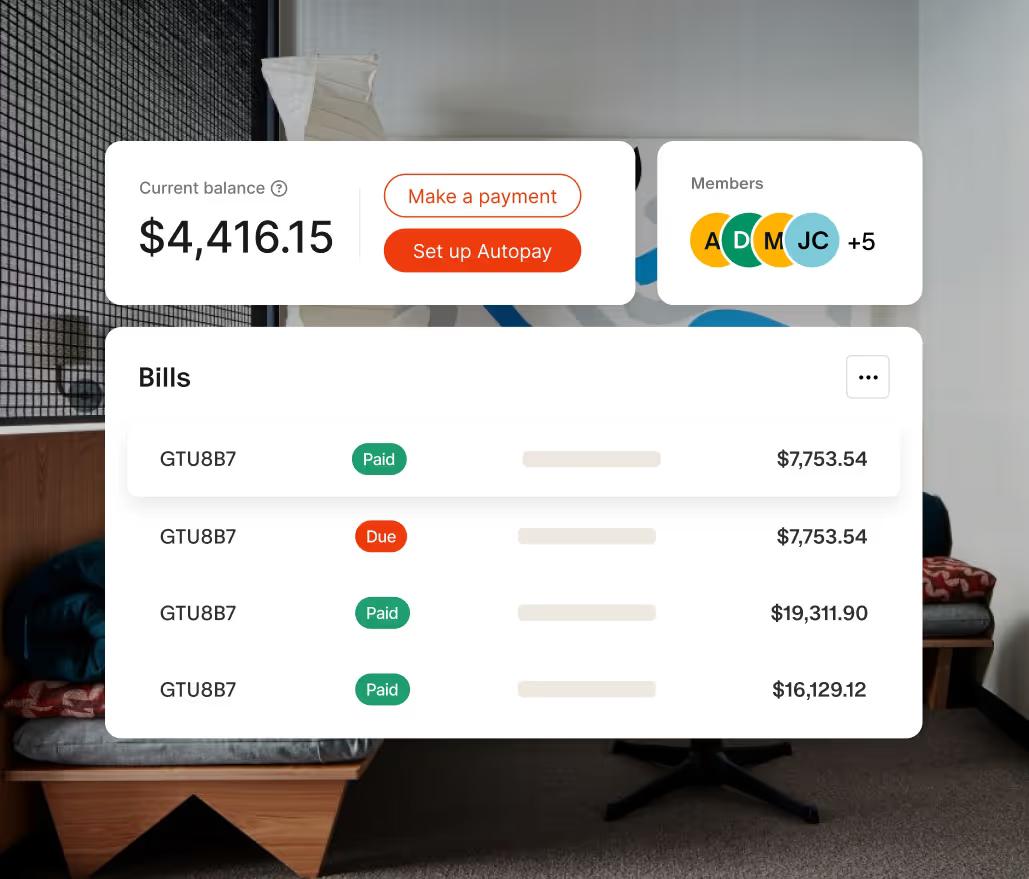8 Essential Business Travel Technologies

You're 90 minutes into booking hotels for your concrete crew—12 rooms across three Texas job sites. Different websites, manual approval emails, authorization forms for each card.
Your phone rings. The San Antonio pour got delayed three days. You need to cancel eight non-refundable rooms. That's $2,100 gone before the first crew member checks in.
This happens because business travel platforms are built for consultants flying business class, not teams needing 15 rooms near a job site.
Global business travel spending hit $1.48 trillion in 2024. Companies booking crew travel waste hours on manual processes and lose thousands to preventable cancellation fees. The right technology fixes both problems.
This guide walks through 8 travel tech solutions that cut booking time, prevent wasted spend, and give you real visibility into travel costs—plus comparison tables showing which platforms work best for project-based operations.
1. Flexible Booking and Cancellation Technology
Construction delays happen. Manufacturing equipment arrives late. Weather pushes schedules. Your booking platform needs to handle reality without costing you money.
Hotel cancellation rates remain high, with a 2024 industry study showing cancellations reaching 40% of revenue on major booking platforms in some regions. Traditional non-refundable bookings protect hotels but punish companies when project timelines shift.
A manufacturing crew's site visit moves from Tuesday to Friday because equipment arrives late. Without flexible cancellation, you lose $1,200 in hotel deposits. With it, you modify instantly and keep the money.
How Platforms Compare
Key Features to Look for
- Day-of cancellation options: Look for cancellation windows until at least noon on check-in day. If a platform only offers 24-hour notice, it's built for corporate travel, not project-based work.
- Modification without penalties: Modifications and cancellations need equal protection that matches field operations
- Refund guarantees: Even on non-refundable rates, the platform absorbs penalties, not your budget
- Automated processing: Modifications happen within 3-5 business days without phone calls
2. Direct Bill and Payment Automation
Business travelers spend an average of 40 hours per month reconciling expenses and payment data. That's a full work week lost to receipt hunting and manual entry.
What’s more, crew members fronting company money means chasing receipts every month-end. Half arrive late, three get lost, and two are unreadable photos.
The solution: the platform pays hotels directly. Crews check in without personal credit cards. Accounting receives one consolidated monthly invoice.
Now your crews check into hotels across three states with zero authorization forms, zero check-in holds, and zero receipt hunting.
How Platforms Compare
Key Features to Look for
If setup requires calling hotel billing departments for folios, the platform hasn't automated anything—it just shifted the burden. Here’s what you really need:
- Incidental coverage: No credit cards needed at check-in
- Virtual credit cards: For booking without exposing company accounts
- Automated expense capture: Eliminates manual receipt collection
- Consolidated invoicing: One monthly invoice within 5 business days after checkout.
3. Project-Based Expense Tracking and Cost Allocation
Project-based travel creates dozens of transactions that need to match back to the right job. Miss that connection, and client billing is wrong, project margins are guesses, and finance wastes hours reconciling spreadsheets.
Asking crew members three weeks later which hotel went with which project doesn't work. They don't remember. Finance needs Phoenix concrete costs separated from Atlanta installation costs.
Project-tagged bookings show $8,200 Phoenix versus $12,400 Atlanta automatically—no spreadsheet allocation, no missed charges, no billing disputes when clients question your invoice.
How Platforms Compare
Key Features to Look for
- Custom fields for project codes that work with your existing system
- Cost tagging at booking time, not after-the-fact when details are forgotten
- Export to accounting systems like QuickBooks, NetSuite, SAP
- Spend visibility by project with real-time dashboards
- Department and cost center allocation for accurate overhead tracking
- Budget tracking per project that alerts when approaching limits
4. Policy Compliance and Approval Workflows
Discovering policy violations at month-end wastes time and creates friction. Preventing violations before money gets spent keeps budgets intact.
66.5% of companies use an online expense reporting platform with mobile solutions, but many still struggle with policy enforcement. The best platforms stop out-of-policy bookings before they happen.
A crew member searches Phoenix hotels. The platform only shows options under the $150/night company limit. If nothing's available under policy, the system allows an out-of-policy request with justification that routes to their manager for approval before the booking confirms.
How Platforms Compare
Key Features to Look for
- Rate limits at search time: Enforced before booking, not after
- Tiered approval workflows: Automatically route to manager, finance, and executive levels
- Out-of-policy requests: With justification before confirmation
- Real-time policy visibility: Travelers see the "why" before booking
- Compliance reporting: Violation alerts for finance oversight
- Geofence-based policies: Set different limits by city ($120 works in Louisville but fails in Manhattan)
5. Mobile Travel Management
Field supervisors don't sit at desks. They manage projects from job sites. Mobile booking isn't optional.
40% of business travelers now book hotels via smartphones. For field operations, that number is higher because workers can't always find computers when plans change.
A field supervisor realizes their crew needs two additional nights on-site. They book the extension from their phone while standing at the job site. Three minutes, no laptop, no calling the office.
How Platforms Compare
Key Features to Look for
Test whether you can modify trips in-app without calling support. If logging in becomes the barrier, the app won't get used. Look for these green flags:
- Full mobile booking: Not just viewing—field supervisors can't always find computers when plans change
- Offline itinerary access: For remote locations where job sites don't guarantee cell coverage
- In-app modifications: Instant changes without calling support. Test whether you can modify trips in-app; if logging in becomes the barrier, the app won't get used.
- Mobile receipt capture: Document expenses on-site
- Push notifications: For flight delays, booking confirmations, and schedule changes
- Biometric login: Security without remembering passwords in the field
6. Reporting and Analytics Tools
You can't control what you can't measure. Analytics reveal spending patterns you'd never spot manually reviewing receipts.
Your CFO wants Q1 travel costs by project today. Real-time reporting shows $45K construction travel and $32K manufacturing travel instantly. It also reveals many bookings happen last-minute, driving premium rates.
That's $8K monthly you could redirect by booking three days earlier.
How Platforms Compare
Key Features to Look for
The platform should let you build custom reports for your KPIs, not force you into vendor templates.
- Real-time spend dashboards: Current data, not numbers from 30 days ago
- Top traveler and spender reports: Identify patterns
- Project and department breakdown: For accurate client billing
- Booking pattern analysis: Advance booking rates, average hotel costs, and last-minute premiums
- Budget vs. actual tracking: Alerts when approaching limits
- Exportable data: Excel, CSV, or API without manual reformatting
- Trend analysis: Spot seasonal patterns and cost increases over time
7. 24/7 Support and Emergency Assistance
Equipment failures at 11pm require next-day travel bookings. Flight delays at midnight need rebooking. Field work doesn't operate on 9-5 schedules.
Business travelers identify flight cancellations and modifications as their top pain point, with 65.7% experiencing flight delays and 31.9% facing cancellations. When these happen after hours, inadequate support costs money and strands crews.
A crew member arrives at their hotel at 10pm to find no reservation in the system. They call platform support. The representative confirms the booking, resolves the issue with the hotel in eight minutes. The crew checks in that night instead of scrambling to find alternate accommodations.
How Platforms Compare
Key Features to Look for
Response time should average under 10 minutes for urgent issues. Support staff need to understand that equipment failures cause last-minute changes, not poor planning. Test after-hours support before signing contracts—call at 2am on a Saturday and see if someone answers who can help.
- Round-the-clock support: Phone and chat with humans who can make bookings and modifications at midnight, not just open tickets
- Emergency rebooking: When flights cancel or equipment breaks
- Flight delay and cancellation support: Rebook immediately
- Hotel issue resolution: Wrong room type or no reservation found
- After-hours booking: For urgent trips when timelines change unexpectedly
- Support ticket tracking: Nothing falls through the cracks
8. Engine Removes Month-End Surprises For Project-Based Travel
You've tried travel and tech platforms built for consultants booking business class flights, not crews needing 15 rooms near job sites.
You spend hours fighting systems that don't understand project codes, non-refundable policies that kill budgets when weather delays pours, and support that closes at 5pm when equipment breaks at midnight.
Engine works differently. Our platform is built specifically for project-based work where timelines shift, crews move between sites, and every booking ties back to the right job. No jumping between systems. All seven technologies work together:
- Flex Pro: Optional subscription guarantees refunds on cancellations or modifications until noon day-of check-in, even on non-refundable rates. Engine absorbs the loss, not your budget. Cancel or modify directly in the platform.
- Direct Bill + Incidental Coverage: Crews check in without credit cards. Engine pays hotels directly and covers incidentals upfront. One consolidated monthly invoice for all company travel.
- Custom Fields for Project Tracking: Tag every booking by project code at reservation time. Costs roll up to correct jobs. Export tagged data to accounting systems.
- Travel Policies: Enforce rate limits at search time. Out-of-policy requests route for approval. Real-time compliance visibility.
- Mobile Access: Full-featured iOS and Android apps. Book, modify, and manage travel from job sites without laptops.
- Real-Time Analytics: Live spend dashboards by project. Booking pattern analysis. Budget tracking. Exportable data.
- 24/7 Support: Around-the-clock assistance from specialists who understand project-based travel. Emergency rebooking and issue resolution when equipment fails or weather delays projects.

The Bottom Line
Companies sending consultants to predictable conference schedules might find traditional TMCs sufficient. Project-based operations need Engine.
- Travel ties to specific projects or job sites requiring accurate cost allocation
- Timelines shift frequently due to weather, equipment, or client changes
- Crews book from the field without office support
- Finance needs real-time visibility into travel spend by project
- Traditional corporate travel platforms create more work than they solve
Ready to see how Engine handles crew travel for project-based businesses? Schedule a demo with Engine today for hotels, flights, cars across 800,000+ properties.
FAQs
How long does it take to see ROI from implementing business travel technology?
Most companies recover their investment within 3-6 months through reduced cancellation losses, faster booking times, and eliminated receipt collection hours. The payback accelerates if you're currently losing money on non-refundable hotels or spending significant admin time on manual expense reconciliation. Companies using platforms like Engine typically save 15+ hours monthly on administration alone, plus thousands recovered from flexible cancellation policies.
Can we integrate travel technology with our existing project management software?
Modern travel platforms export data to standard accounting systems like QuickBooks, NetSuite, and SAP, but direct integration with project management tools varies by platform. Look for CSV export capability and API access so you can pull travel costs into whatever project tracking system you already use without manual data entry. Engine provides multiple export formats and API access for custom integrations with existing systems.
What happens to our travel data if we switch platforms later?
Reputable platforms let you export your complete booking history, including project codes, traveler details, and expense records before you cancel service. Request data export capabilities during the demo phase and verify you can download everything in standard formats like CSV or Excel that work anywhere, not proprietary formats that lock you in. Before committing to any platform, confirm their data portability policy in writing.
How do these technologies handle international travel and multiple currencies?
Look for platforms that support multi-currency booking and conversion, handle international payment processing, and provide 24/7 support across time zones. For project-based companies sending crews internationally, the platform should track expenses in original currency while reporting in your base currency for accurate project costing. Engine supports booking in 185+ countries with automatic currency conversion and consolidated billing in USD.


.jpg)



.avif)




.jpg)

.jpg)




.jpg)







.jpg)



.avif)






